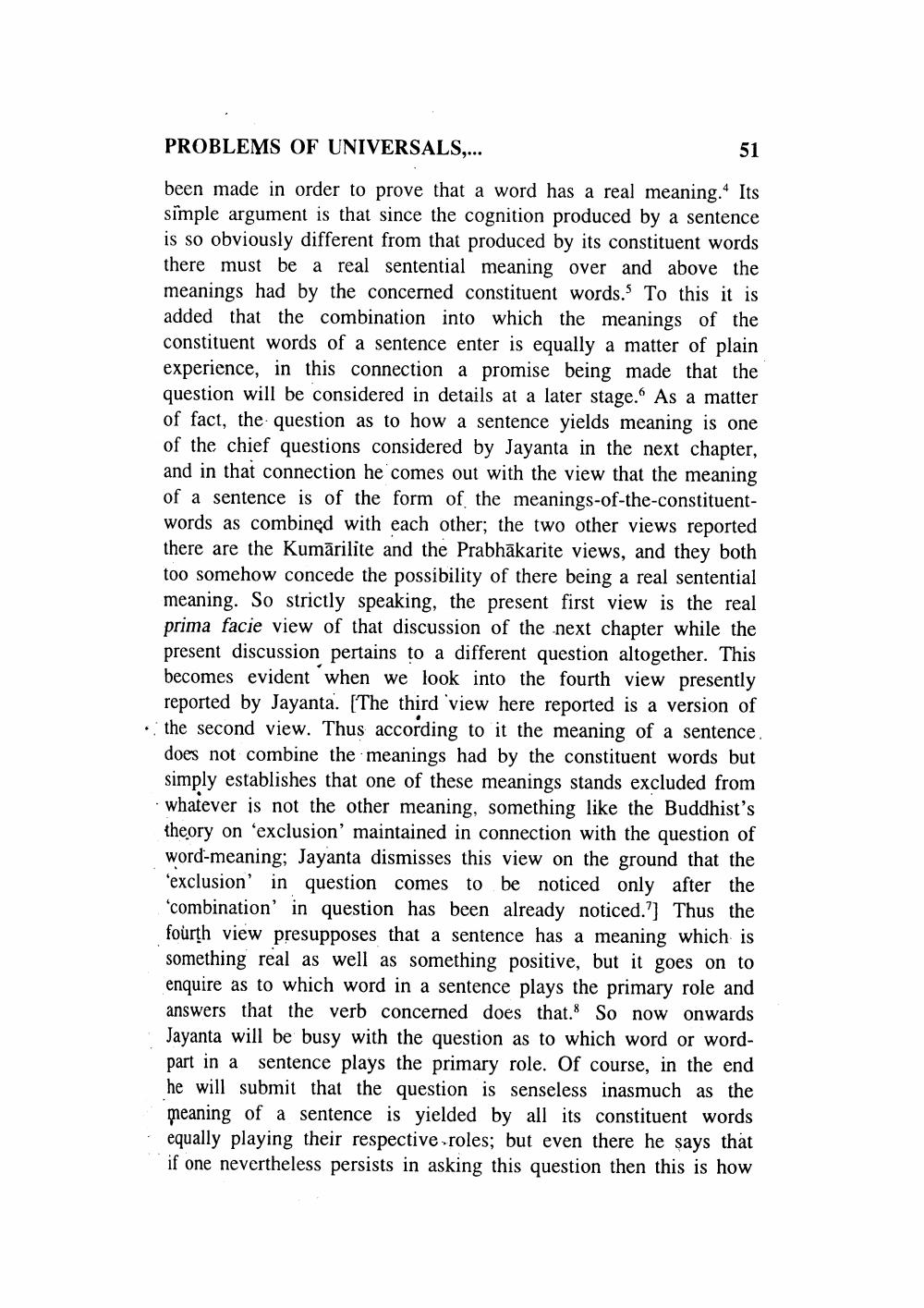________________
PROBLEMS OF UNIVERSALS,...
51
been made in order to prove that a word has a real meaning. Its simple argument is that since the cognition produced by a sentence is so obviously different from that produced by its constituent words there must be a real sentential meaning over and above the meanings had by the concerned constituent words. To this it is added that the combination into which the meanings of the constituent words of a sentence enter is equally a matter of plain experience, in this connection a promise being made that the question will be considered in details at a later stage. As a matter of fact, the question as to how a sentence yields meaning is one of the chief questions considered by Jayanta in the next chapter, and in that connection he comes out with the view that the meaning of a sentence is of the form of the meanings-of-the-constituentwords as combined with each other, the two other views reported there are the Kumārilite and the Prabhākarite views, and they both too somehow concede the possibility of there being a real sentential meaning. So strictly speaking, the present first view is the real prima facie view of that discussion of the next chapter while the present discussion pertains to a different question altogether. This becomes evident when we look into the fourth view presently reported by Jayanta. [The third view here reported is a version of the second view. Thus according to it the meaning of a sentence. does not combine the meanings had by the constituent words but simply establishes that one of these meanings stands excluded from whatever is not the other meaning, something like the Buddhist's theory on 'exclusion' maintained in connection with the question of word-meaning; Jayanta dismisses this view on the ground that the 'exclusion' in question comes to be noticed only after the 'combination' in question has been already noticed. Thus the fourth view presupposes that a sentence has a meaning which is something real as well as something positive, but it goes on to enquire as to which word in a sentence plays the primary role and answers that the verb concerned does that. So now onwards Jayanta will be busy with the question as to which word or wordpart in a sentence plays the primary role. Of course, in the end he will submit that the question is senseless inasmuch as the meaning of a sentence is yielded by all its constituent words equally playing their respective-roles; but even there he says that if one nevertheless persists in asking this question then this is how




